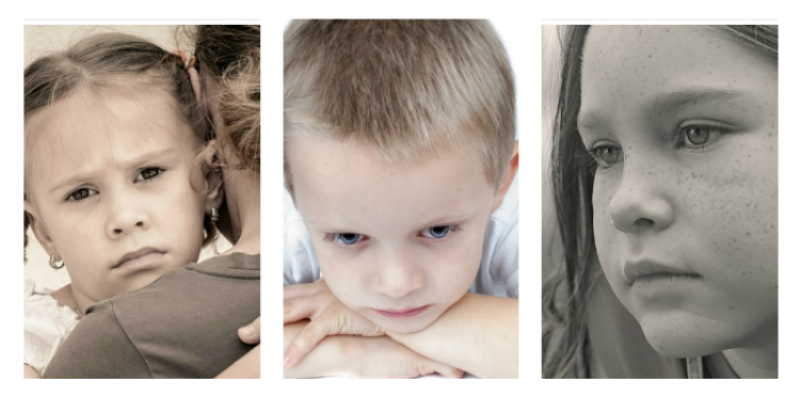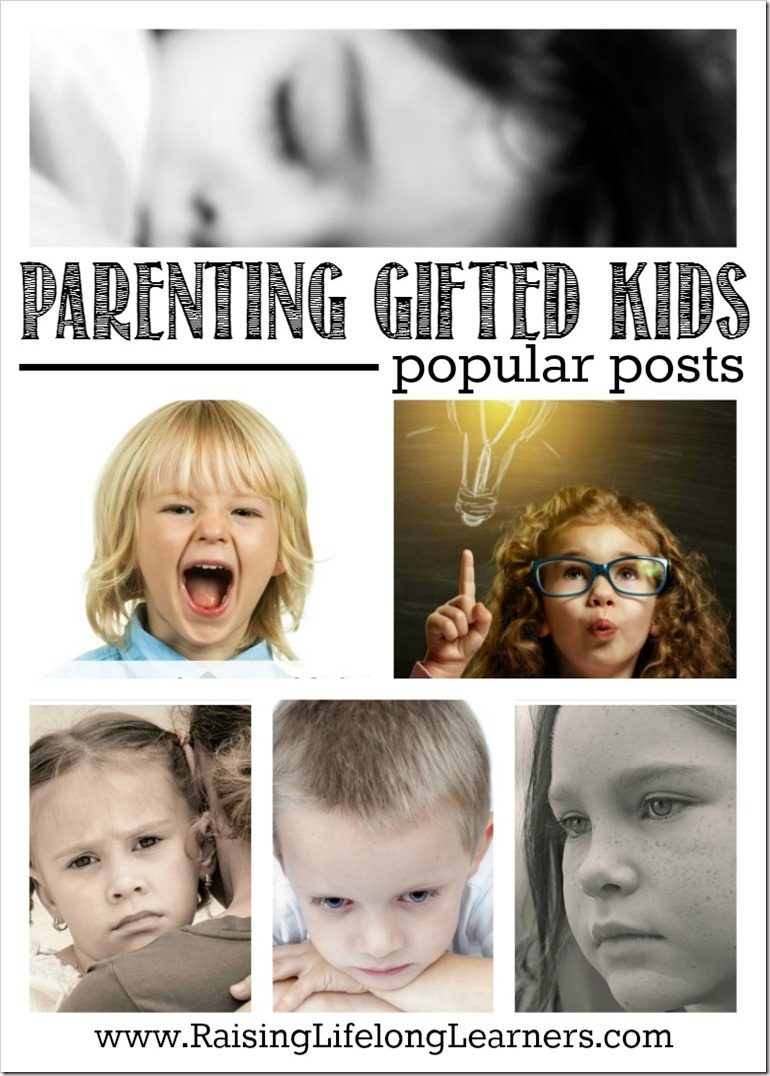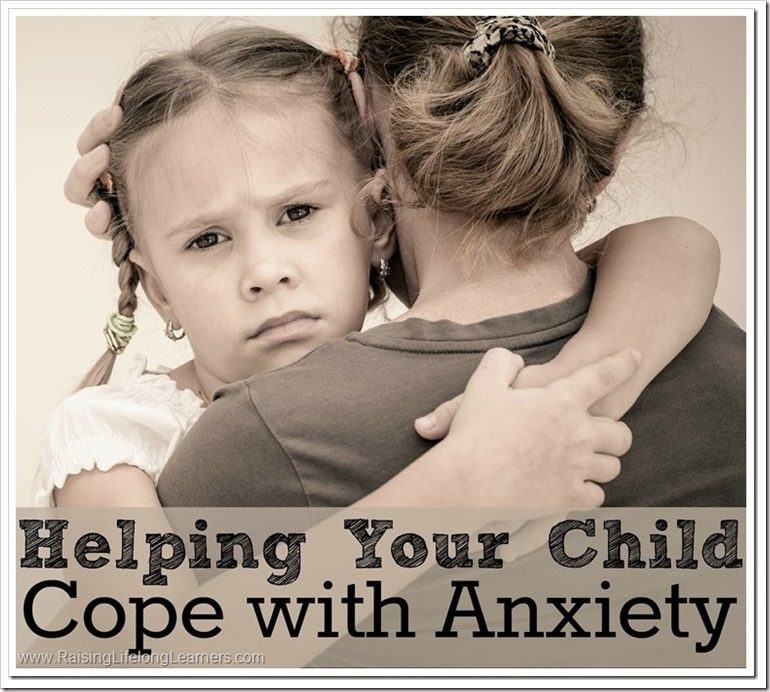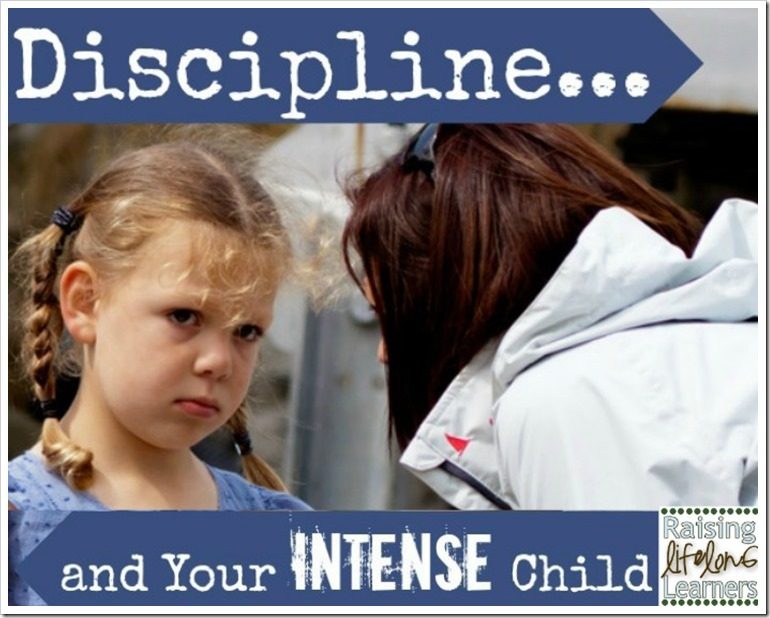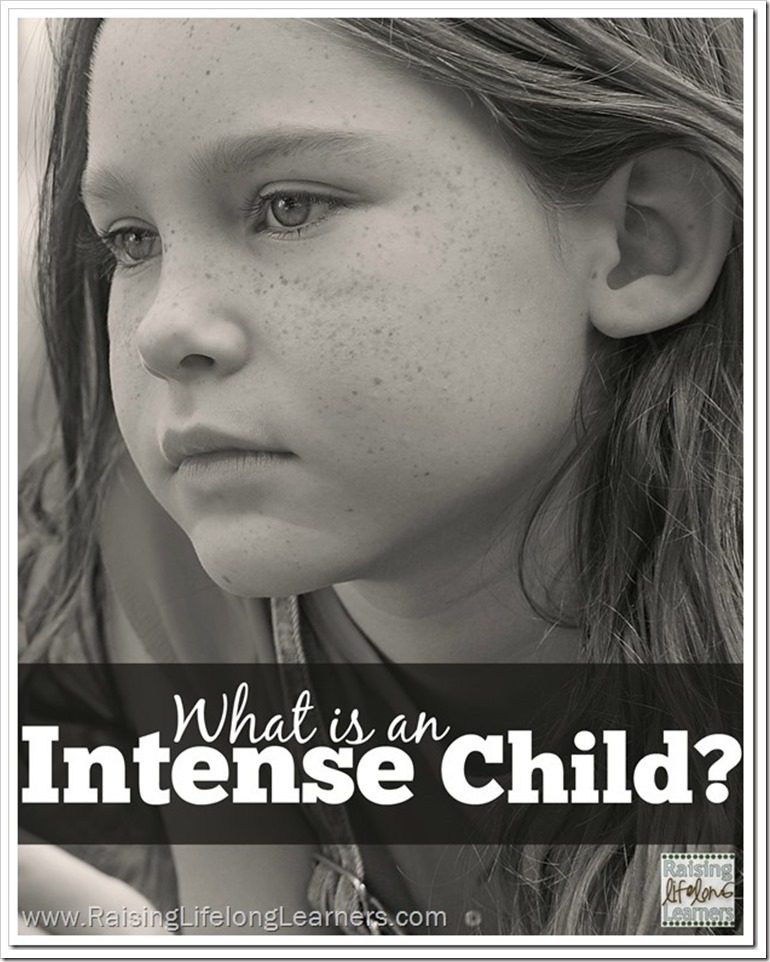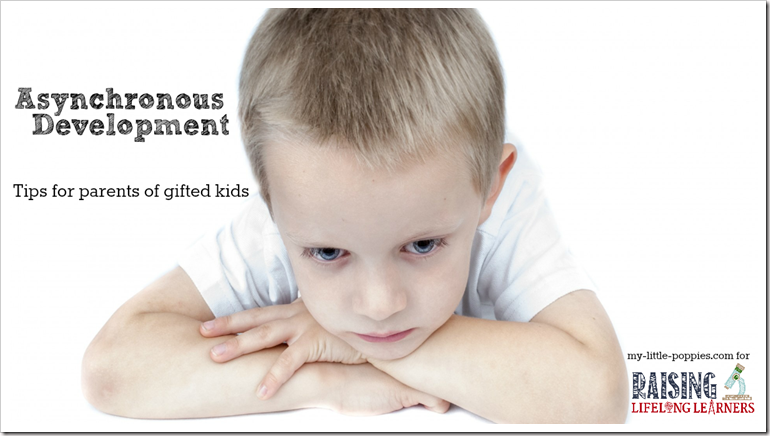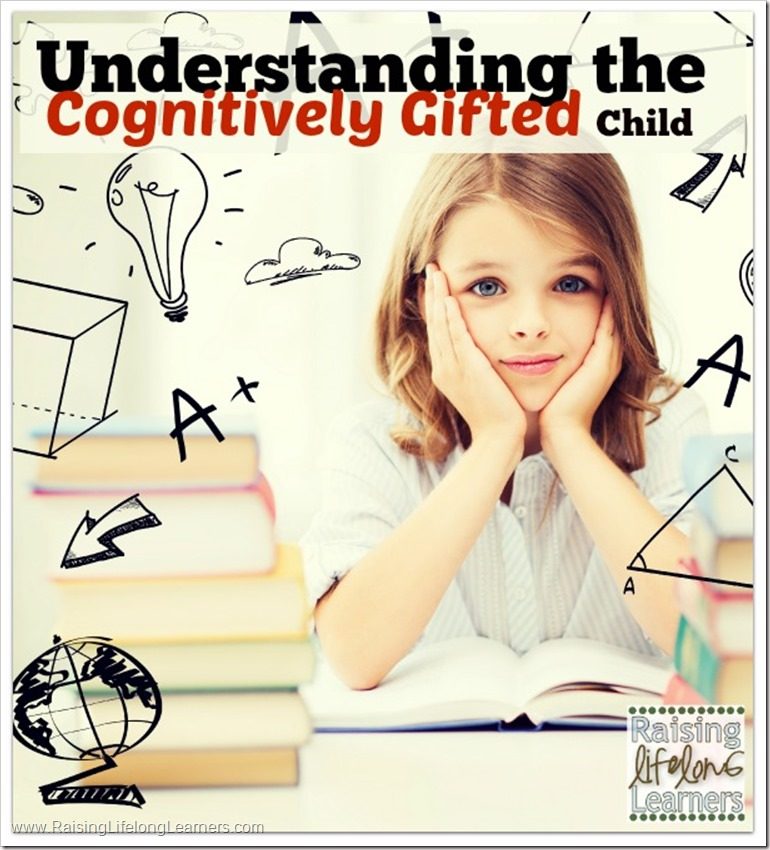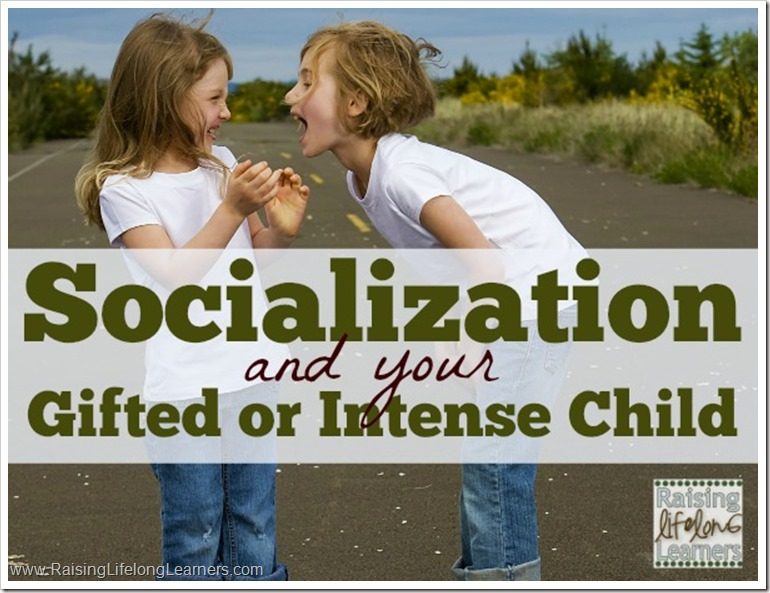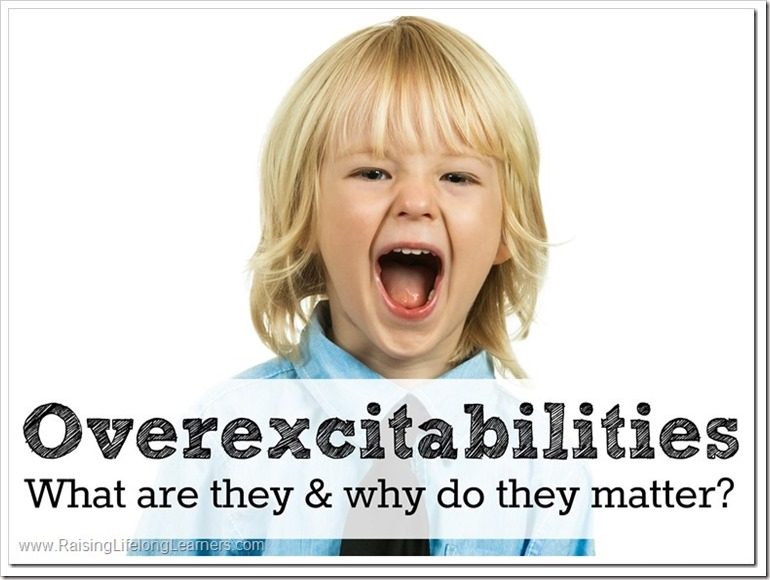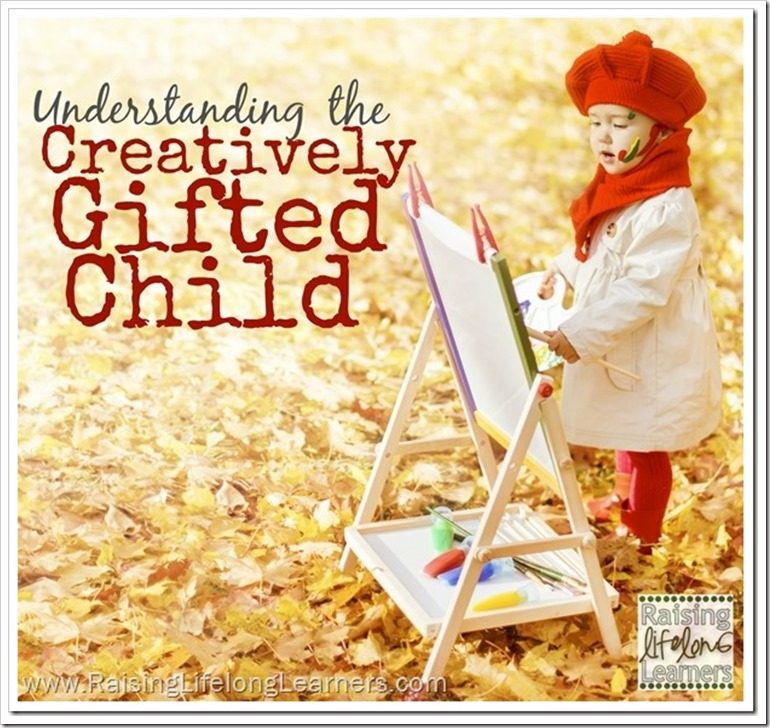Parenting Gifted Kids | Popular Posts
Another year has come and gone… 2015 here at RLL was full of food, fun, tips, and community building. And it was all about parenting quirky, challenging, intense, gifted kiddos. Need a cheat-sheet the next time you’re trying to figure your children (or yourself) out?
Take a look at these – the ten most popular posts from 2015 about gifted and intense children. You’ll have an index to great parenting right at your fingertips.
Parenting gifted kids is tough… let’s do it together.
I’m sharing them in order of their views – highest, most-viewed post first. These are the posts that have been shared the most on Facebook, Twitter, and Pinterest, and the ones you all read again and again. Which did YOU like the best?
Helping Your Child Cope With Anxiety
I’m willing to bet that every person reading this has experienced anxiety, depression, or stress at one point or another in their life. And I’m willing to bet that it wasn’t a pleasant experience. For as many as one in eight children, though, anxiety is a daily struggle. {According to the Anxiety and Depression Association of America} Anxiety in children can cause struggles in education, social situations, and can lead to bigger problems as they grow older.
For gifted children, anxiety can be an even greater struggle.
The very traits that define giftedness, separating the gifted child from the smart kid – that incredible creativity, cognitive awareness, and intensity – those characteristics make gifted children more aware and potentially emotional about their surroundings. This ability to take it all in, even those details that escape most children, can lead to overexcitabilities and produce anxious children.
Discipline and Your Intense Child
Do you feel like all you ever do is yell at and correct your intense child? That for every time you praise him, you’ve already berated him 15 times? And, are you completely exhausted before you’ve finished your first cup of coffee?
Yeah… me too.
So what do we do? Our children need discipline. While most adults {and children} think discipline means the act of punishing, and it can, it is more constructive to think of discipline as training a person to obey rules.
As hard as it may be to get our most spirited and intense kiddos on board to follow rules, the fact is, everyone has to. I can’t walk into a store and take what I want, and walk out without paying. I can’t speed through every red light because I’d rather not stop on my way to wherever it is I am going.
And neither can they.
What is an Intense Child?
If you have an intense child, you probably know it. Call them spirited, emotionally intense, difficult, high needs, or challenging…it doesn’t matter.
You know them and you’re tired. And defeated. And sure you’re doing everything all wrong because those parenting books other parents swear by just don’t work for you.
The intense child is more – more emotional, more energetic, more sensitive, more empathetic, more focused, more distracted, more, more, more – than other children.
Do Gifted Children Need Less Sleep?
In a word… maybe.
Google it, and you’ll find all sorts of articles that include “needs less sleep” as a common characteristic of a gifted child. And that certainly seems to be true in my experience.
My own kids have always been horrible sleepers as compared to my friends’ kids. Parents of gifted kids I taught would come in for meetings in the morning bleary-eyed and clutching large travel mugs of coffee. And, one of my favorite readers routinely posts status updates that include her need for more coffee and chocolate.
Asynchronous Development in Gifted Children
When you’re parenting gifted or twice-exceptional kids, you often feel lost and alone — like nobody will ever truly get what you live on a day-to-day basis. I felt that way, and it’s one of the reasons I created RLL in the first place… I hoped to bring other parents of tough kids together — and to find my own community. I’m so thrilled to welcome one of my favorites to share a post with you today. Cait is the author of my-little-poppies, and is part of our community. She’s in the trenches with challenging kids, my friends, and she has so much to share. I’ll let her get to it…
My 7-year-old son, Leo, is twice-exceptional: profoundly gifted and learning disabled. As his mother, I often feel frustrated with the public’s understanding of giftedness. Far too many people equate giftedness with achievement. They assume that gifted children have it easier, that they have an advantage over their peers. These folks see gifted education as elite and unnecessary. I have little doubt that many of these misperceptions stem from the label itself: gifted. The label conjures up images of beautifully wrapped presents with neatly tied bows, images that are a stark contrast to the reality of giftedness: asynchrony.
Understanding the Cognitively Gifted Child
Cognitive ability is less about specific knowledge bases, and more about the neurological skills needed to do anything — from the simplest to the most difficult task. It is how we learn, problem-solve, and pay attention. Each of the mental functions {cognitive abilities} we need to function relies on specific brain structures.
So, if we’re not neurologists or psychotherapists, and have no idea which parts of the brain control perception, attention, memory, motor functions, language, visual/spatial processing, and executive functions, how can we understand and nurture our cognitively gifted child?
The Ultimate Guide to Homeschooling Gifted Children
Since I began searching for alternate paths of learning for my twice-exceptional son over four years ago, and changed my thinking enough to gather the courage to pull him out of school to pursue homeschooling, I’ve watched the population of homeschoolers with gifted children grow. And grow.
And, in the process, I’ve come to believe wholeheartedly that homeschooling is the best possible educational path available for gifted learners. In school systems where funding for gifted programs are either nonexistent, or being cut dramatically, there just aren’t enough resources to meet the needs of our gifted kids.
So, they get left behind as teachers are forced teach to the middle or remediate those that struggle. But all children deserve to learn every day, and, for gifted kids, homeschooling is the answer.
For all of you out there considering homeschooling as the answer for your bright – or twice-exceptional – kids, and for those already on this path alongside me, I’ve pulled together this Ultimate Guide to Homeschooling Gifted Kids full of information, resources and support.
Socialization and Your Gifted or Intense Child
If you’ve been homeschooling for any length of time, you’ve likely been asked about your kids’ socialization. And, if you’re beyond your first year of homeschooling your kids, you likely find the question laughable. Not only is there rarely a problem getting your kids to talk to people, you often have to say no to opportunities just so you can stay home every once in awhile and teach your kids.
For you new homeschoolers, or those of you who live in areas where there aren’t a lot of activities in which to involve your kids, you may still worry about this. Rest assured, though, it’ll be okay. The type of socialization your kids will get at home will be far superior to what they’d get at school.
For parents of gifted and intense children, this question can be more difficult to brush off, though. The gifted or intense child often struggles in social situations. Gifted and intense children have different social and emotional needs than typical kids. {Click to Tweet} Oftentimes their strengths and intensities contribute to difficult social issues.
Overexcitabilities and Why They Matter for Gifted Children
The mornings we need to be out of the house at a certain time look something like this – a child is complaining about the seams in his socks, while another is having an animated sing along with her stuffed animals, completely oblivious to the fact that she has her shirt on backwards and her shoes on the wrong feet. Another is anxious, and trying to make sure everyone has what they need to get out the door so she doesn’t have to walk into her class late and upset her co-op teacher.
Can you relate?
Our family is full of what Polish psychologist/psychiatrist Kazimierz Dabrowski called overexcitabilities. As I’ve written before, gifted children are highly likely to be more intense than their typical peers. This increased awareness, sensitivity, and intensity can present challenges that make them difficult children to parent.
One of the most difficult challenges to overcome, though, is the belief that Dabrowski’s five overexcitabilities need to be cured. Experiencing the world with such intensity can be very frustrating for a child {and a parent}, but it can also be very rewarding. They can lead to great successes, innovations, and wonderful creativity.
Understanding the Creatively Gifted Child
Have you thought more about what a gifted child looks like? More specifically, are you looking at your own child and getting to know him better? Seeing her for who she is – and loving that, despite the exhaustion you feel? It’s tough to be objective when you’re looking at your own child, isn’t it?
It is for me.
I look at my kids and see the often absent-minded, but extremely creative, one. I see the academically-minded people-pleaser, who would do anything you ask, and loves to learn. I see a cognitively advanced kiddo who wants to do what he wants to do when he wants to do it – and beware the storms you’ll weather if you dare go against the improbable plan he’s concocted {but not shared}.
There you have it… the most read posts about parenting gifted kiddos in 2015. Which was YOUR favorite?
Better yet, tell me what YOU want to read next. What topics do I need to write about? Leave me a comment and I’ll add it to the line-up for 2016.
Thank you so much for reading, and for making this a great community to be a part of this past year. I’m so looking forward to getting to know you even better.
For even more posts about parenting gifted kids, check out:

